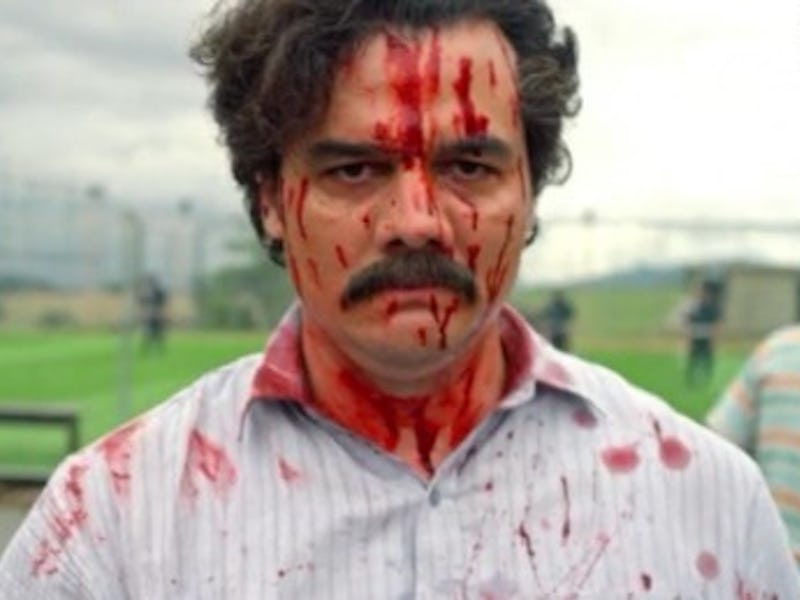Pablo Escobar Joins Television's League of Anti-Heroes
Why do we find ourselves rooting for one of the most notorious drug lords ever?

Pablo Escobar was responsible for the murders of about 4000 people. He killed police officers, judges, and government officials. He ran one of the greatest drug empires ever — a drug empire so great, in fact, that it landed him on the Forbes list of wealthiest people. It’s even rumored that he spent $2500 a week solely on rubber bands, just to bind all of his money.
Now, imagine if Pablo Escobar wasn’t real and instead was a fictional character developed solely for Netflix’s Narcos. We might actually revere him, view him a “boss,” and fall in love with the complexities and nuances of his character – similar to mass audience reactions to men like Tony Montana, Walter White, or Tony Soprano. In fact, if Pablo Escobar were a fictional character, it’s likely that he would be one of the greatest anti-heroes in television/movie history.
Nope, we can't
Pablo Escobar is a man who is completely confident in himself and his own abilities. He doesn’t lie to his family (or himself) as Walter (Breaking Bad) and Dexter (Dexter) often do. We see that he loves and cares deeply for his wife, children, and the friends who have entered his inner circle. He doesn’t use the wealth he amasses completely selfishly. In fact, both in the show and in real life, he donated money to churches and hospitals, built parks, supported Colombian soccer teams, and created a neighborhood in Colombia for poor residents. In Episode 4 of Narcos Season 2, he states that “the men of always aren’t interested in the children of never”. He saw the failings of his government and sought to remedy it. He was even given the nickname “Robin Hood” by the Colombian press.
We have a habit of rooting for underdogs and for people who dare to take on the government and the police. Many of the governments and police forces throughout the world are filled with liars, scammers, and corrupt individuals who are only interested in serving the self. Therefore, when we watch a character like Jason Bourne or Jack Bauer, we marvel at their feats: standing up against entire countries, especially because they represent what we wish we could – but know that we can’t – do. Narcos, in particular, depicts a government that is so hellbent on capturing an individual that they will stop at nothing to achieve this goal — even if that means killing innocent people and disrupting entire lives.
At the end of the day, really
Pablo Escobar is a character that we revere on television, but a human that we denounce in real life. But why? It’s possible that we’re scared to admit that we are entranced by his lifestyle — or even that if we had the ability to do what he did, we might have done it, too. When we watch television, it’s easier to understand that people aren’t separated strictly into the binary of good and bad but instead can (and often do) exist in a moral gray area that allows us to root for either side, sometimes even changing sides as a series goes on. However, in real life, we pretend to know who the good and the bad of the world are. Perhaps we are just like Walter White and Dexter, lying to ourselves about who we truly are.